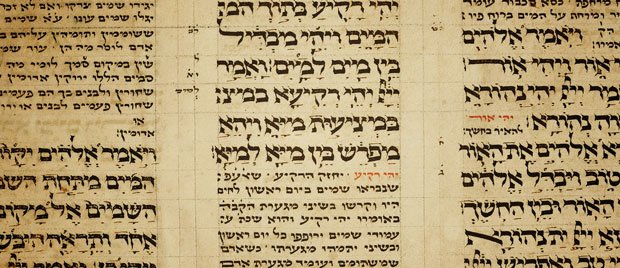
Pentateuch [pen-tuh-took, -tyook] ExamplesWord Origin noun
- the first five books of the Old Testament: Genesis, Exodus, Leviticus, Numbers, and Deuteronomy.
Origin of Pentateuch Late Latin Pentateuchus Late Greek pentáteuchos, equivalent to Greek penta- penta- + teûchos tool, vessel (Late Greek: scroll case book)Related formsPen·ta·teuch·al, adjective Examples from the Web for pentateuchal Historical Examples of pentateuchal
The tribunal of the Synhedrion was filled with painful anxiety as to the rigid execution of pentateuchal ordinances.
History of the Jews, Vol. V (of 6)
Heinrich Graetz
That the Pentateuchal law is solely concerned with practical conduct, religious, ceremonial and moral, needs not saying.
A History of Mediaeval Jewish Philosophy
Isaac Husik
Maimonides’s ethics as well as his interpretation of the Pentateuchal laws is intellectualistic, as the foregoing account shows.
A History of Mediaeval Jewish Philosophy
Isaac Husik
The belief underlies the Pentateuchal enactments regarding the holding of the soil, which is only to be temporary.
The Religion of Babylonia and Assyria
Morris Jastrow
It is Mr. Gladstone, and not I, who will have it that the pentateuchal cosmogony is to be taken as science.
Thomas Henry Huxley
British Dictionary definitions for pentateuchal Pentateuch noun
- the first five books of the Old Testament regarded as a unity
Derived FormsPentateuchal, adjectiveWord Origin for Pentateuch C16: from Church Latin pentateuchus, from Greek penta- + teukhos tool (in Late Greek: scroll) Word Origin and History for pentateuchal Pentateuch
first five books of the Bible, c.1400, from Late Latin pentateuchus (Tertullian, c.207), from Greek pentateukhos (c.160), originally an adjective (abstracted from phrase pentateukhos biblos), from pente “five” (see five) + teukhos “implement, vessel, gear” (in Late Greek “book,” via notion of “case for scrolls”), literally “anything produced,” related to teukhein “to make ready,” from PIE *dheugh- “to produce something of utility” (see doughty).
 Liberal Dictionary English Dictionary
Liberal Dictionary English Dictionary